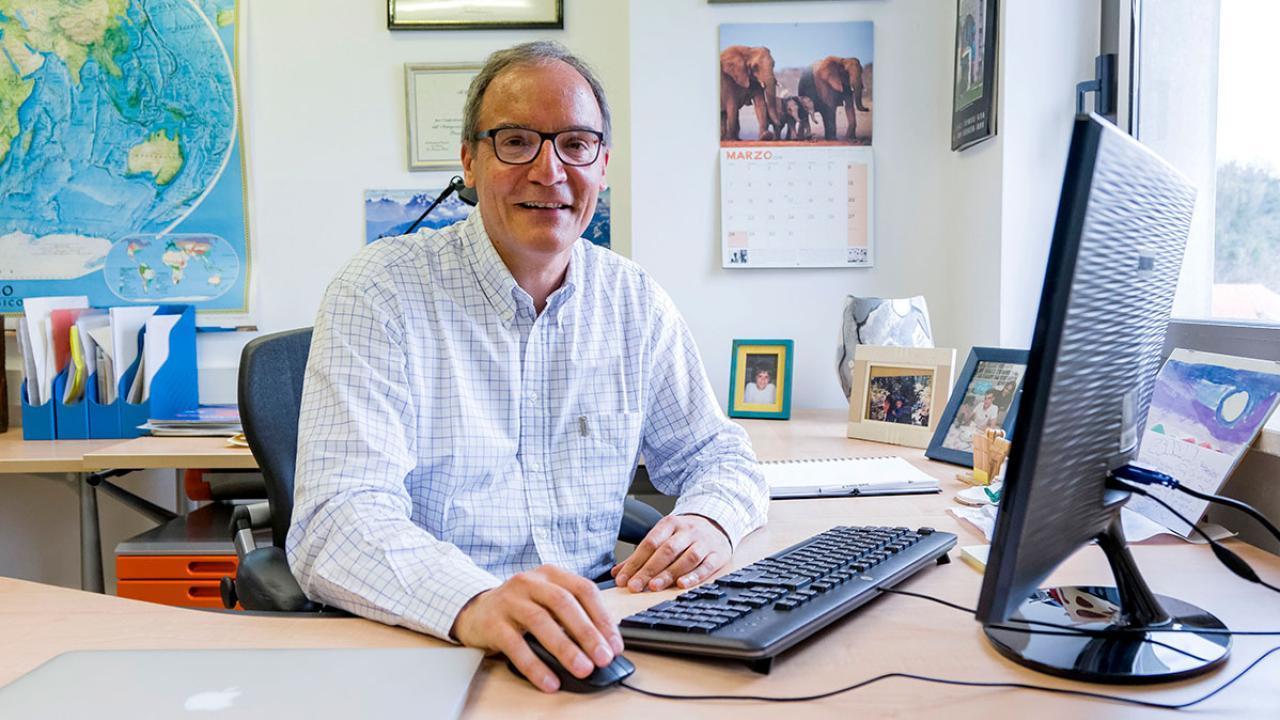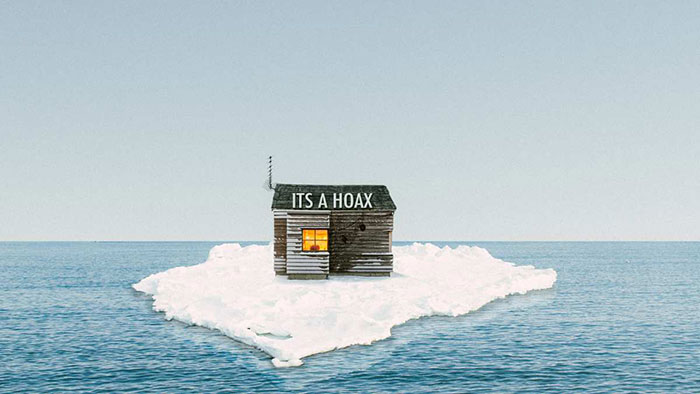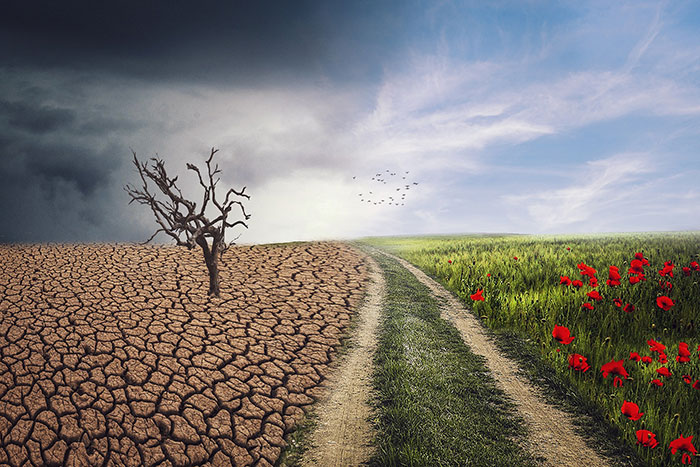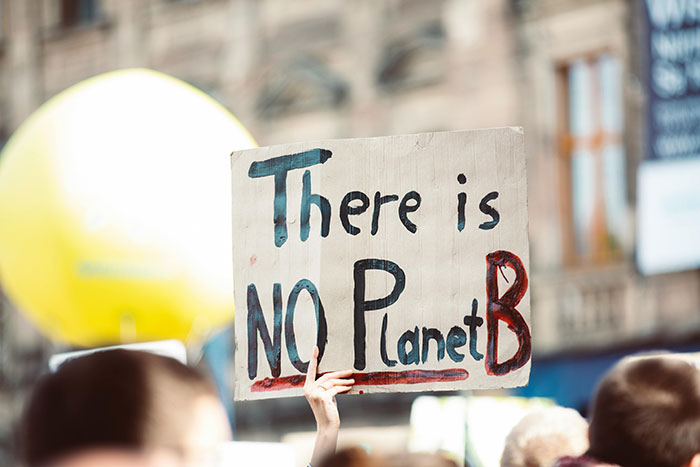
Filippo Giorgi is the former head of the Earth System Physics (ESP) section and now scientist emeritus at ICTP.
In this interview, Giorgi draws from his extraordinary career in climate science to discuss nuclear winter, global warming, cultural barriers to change, and the future of our planet.
What first drew you to science?
I decided to get into science when I was 14. In fact, I can tell you the exact day when this happened: November 1st 1973. Just by chance, I happened to read a magazine article on UFOs. Back then, this was a very trendy topic. I got very interested in the possibility of life outside Earth, on other planets. In those days there was no internet, so from my small town I had to go to different cities nearby to get books, and there weren’t many books on this topic.
In the beginning, I liked astronomy, and spent many nights looking at stars with a small telescope. I got into the university of L'Aquila, close to where I grew up in Abruzzo, with the idea of studying astronomy. But in the 1970s, there was a lot of political turmoil, so I wanted to do something more useful for society. I was very interested in renewable energies back then, but there was no department dealing with this topic in the university.
How did you end up in climate physics?
I met a professor at the University of L'Aquila who worked in climate science, Prof. Visconti, and decided to work on climate issues. I did my thesis on atmospheric dynamics and later was awarded a scholarship to go to Georgia Tech, where I got my PhD. After finishing my PhD I worked at the National Center for Atmospheric Research in Boulder, Colorado, for about 15 years. During my PhD and post-doctoral work, in the mid-1980s, I ended up working on the emerging topic of nuclear winter.
The theory of nuclear winter deals with the climactic consequences of a full-blown nuclear war and became popular during the cold war. Essentially, it states that all the nuclear mega explosions ignite large scale fires, which emit a lot of soot, and this blocks most of the sunlight, throwing the surface of the Earth into a long winter. There’s also a theory that the extinction event that killed the dinosaurs was a similar process, with the fires being caused by the impact of a meteorite.
This research opened up a brand new modeling field, and we were among the first to work on it. I developed the aerosol microphysics scheme for the first climate model with radiatively interactive aerosols to simulate global scale nuclear winter. This project was very interesting for me because it also exposed me to some of the political functionings related to this topic.
Then, in 1989, the Berlin Wall fell, and my advisor told me that nobody cared about nuclear winter anymore, so I had to find a different research topic. Luckily, there was another very interesting project I could work on: the Yucca Mountain project. Yucca Mountain is a site in Southern Nevada where they wanted to build a repository for all the nuclear waste produced in the United States.
Essentially, the idea was to bury the waste in lead containers hundreds of meters below the surface. After a few thousand years the radioactivity destroys these containers, and therefore the soil above acts as a huge container for this radioactive material. You have to choose a non-seismic site and a very dry site so as to minimize the risk of contaminating the groundwater.
For this project we developed the first regional climate model in the world to assess whether climate change might modify the hydrology in the area of the Yucca Mountain site, and this was extremely exciting for me. We pioneered the field of regional climate modeling. I think they never built the site due to legal battles between the state of Nevada and the Federal government.
How did you come to set up the ESP section at ICTP?
I stayed in the USA from 1983 until 1998, but when I married and our first child was born, we wanted to move back to Europe. I learned that ICTP wanted to create a new section on the physics of weather and climate, and so applied for the group leader position and eventually got it, and moved to Trieste.
I admit the beginning was not easy, because I was essentially by myself, but after a year, we had three more people, Franco Molteni, Fred Kucharski and Xunqiang Bi, and then others followed. The idea was to cover both regional and global climate modeling. Since then, the group evolved into the ESP section with the inclusion of a solid Earth research component.
An important career development for me was my involvement in the Intergovernmental Panel on Climate Change (IPCC), which won the Nobel Price for peace in 2007, and to which I have contributed since the early 1990s.
How has public perception of the climate crisis changed over the years?
Back in the 1990s, you could already see the signs of global warming, but the real question was whether this warming was due to human activities. I remember a lot of discussions on this, and the scientific community was very cautious about stating that the warming was due to human causes.
Of course, the alarm was going on already in the 1970s, but if you want to ask society to undergo major changes, such as in the energy system, you must have solid grounds. As time went on, the evidence for the human cause of global warming grew and 2001 was a big turning point. That year’s IPCC report was the first to include a statement saying that there was more than a 50% probability that the warming was due to human activities.
Then in the 2007 report, the warming itself was defined as unequivocal, and finally in the 2021 report the word unequivocal was used also for the attribution to human causes. I remember when a colleague of mine came up with the word unequivocal. Brilliant word.
The media often present a narrative where we reach thresholds at which everything just catches fire or melts.
There are thresholds that can trigger irreversible processes over long temporal scales, order of centuries, not the next few years. For example, melting of the Greenland ice sheet is considered to be what is called a tipping point, but tipping doesn't mean that it all melts down suddenly. It is a slow process. Another tipping point is the collapse of the thermohaline circulation which connects all oceans in the world, and this is also a slow process, not as in the movie "The Day After Tomorrow".
Reaching a tipping point means you reach temperatures where these processes become essentially irreversible over time. However, in the news, tipping points are often presented in a very different way, and this can be quite misleading.
Is there a scientific consensus about global warming?
Today there is very large scientific consensus about global warming and its attribution to human activities, as stated in the latest IPCC report. The so-called climate skeptics are very few and they do not have solid scientific points.

In the past, I participated in two questionnaires asking climate scientists how much they thought the Earth was going to warm by the end of the 21st century, and in both cases the mean was about 2.5 degrees, so well beyond the target set in the Paris agreement of 2015.
What would 2.5 degrees of global warming look like?
Well, 2.5 degrees of global warming would not mean the end of the world, but would put considerable stress on society, which already functions at the limits of sustainability. It is important to understand that global warming does not threaten the planet but our society. It is an issue of resilience. 2.5 degrees warming means large changes in different aspects of the climate system, with severe effects on different societal sectors. In this regard, a key issue of this century will be water. We will have less water because losing glaciers means reducing our primary reservoirs of fresh water.
Precipitation change tends to follow a pattern which is often called 'the rich get richer, the poor get poorer.'
Also, on the global scale, not only is water scarce, but it's unevenly distributed. There are countries with a lot of water such as in northern Europe, while others, such as in the Mediterranean, have much less, and this is going to get worse. Precipitation change tends to follow a pattern which is often called “the rich get richer, the poor get poorer”.

In fact, one of the effects of global warming is to push the precipitation systems towards the poles, leading to more water at high latitudes, where precipitation is already relatively high, and less water, thus more droughts, in lower latitude regions where rain is already scarce, such as the Mediterranean. On the other hand, more precipitation at high latitudes may generate more floods, which is another problem for those areas.
What can we do about the problem of water?
We need to change the way we manage water. We have to use or collect water when it is available, not letting it destroy infrastructure when extreme events occur, store it effectively and use it when it is scarce, which will happen with increasing frequency.
Water will be the most precious commodity of the 21st century, because you can live without petrol, but you can’t live without water.
A virtuous example is Portugal, where they do something very smart. They have water accumulation basins with solar panels on the surface, which decrease evaporation and at the same time produce electricity. Water will be the most precious commodity of the 21st century, because you can live without petrol, but you can’t live without water.
How can we prepare for climatic changes?
What we call adaptation measures to climatic changes depend on specific situations. For example, in London, they're raising the Thames Barrier, to help with flooding and in the Netherlands they are raising coastal barriers to face sea level rise. You should not build close to rivers that might flood. You have to be prepared to cope with dry spells and heat waves, especially in cities, which get very hot because of the heat island effect on top of global warming.
Some cities, especially in tropical regions, may become unlivable in the sense that the stress due to outside temperatures and humidity will be so high that it is impossible to work outside. Many mega cities in Asia and Africa could have this problem. However, adaptation is important, but even more so is mitigation, i.e. the reduction of greenhouse gases, to avoid unmanageably large climate changes.
Are governments fully aware of what needs to be done?
I think they're aware of it, but the political will to follow up on it is just not there, because there are too many pressures from different directions. Certainly, there’s no easy solution to the climate change crisis. You can compare the problem of climate change with the so-called ozone hole, i.e., the thinning of the stratospheric ozone layer that protects us from dangerous ultraviolet radiation from the Sun. In that case the science was clear, the threat was clear and the solution available: phasing out CFCs and replacing them with other compounds. There was immediate political action, which led to a solution to the problem. It was a great success of the interaction of science with society.
In the case of climate change the situation is more complicated. You have to change a whole energy system, and this takes decades. And there needs to be a political willingness to push for the change. Especially, there needs to be a political will to help poorer countries to develop within the framework of a green economy, because these countries are becoming the big emitters.
In one sentence, I usually say that we need to manage the unavoidable with climate adaptation measures and avoid the unmanageable with the reduction of emissions, as established in the Paris agreement. We know climate is going to change, we know there will be warming, and we know this will have some impacts on society and ecosystems. We have to be ready for that.

What would happen if we pass the 2-2.5 degree warming target?
My feeling? Nobody really knows, because the climate system is very complex. Climate models tell us that in the worst case scenario the warming could reach five degrees, which would mean living on a different planet. In this case many surprises might happen. Is our society ready for that? It's an issue of resilience. What we learned from COVID is just how vulnerable our society is to global crises, and the global climate change crisis can threaten the sustainable development of society as we know it.
We are not equipped mentally and culturally to deal with these climate and environmental crises because we think too much about ourselves.
In fact, it’s not only climate change. There are many environmental threats going on at the same time: pollution (one of the biggest killers worldwide), loss of biodiversity and soil fertility, plastics, overfishing, deforestation and so on. We are in the middle of a perfect storm.
Think for example of the issue of the Overshoot Day, i.e., the date when demand for bio resources and services by humans in a given year exceeds what the Earth can regenerate that year.
When I grew up in the 1970s, there was no Overshoot Day; we were not consuming more resources than the Earth could generate. Last year the overshoot day was at the beginning of August. This means that we are tapping into the planet's reservoirs of bio-resources, which are not only ours, but also of the future generations. The next generations, our children and grandchildren, are going to inherit a poorer planet than we received from previous generations, and I think this is not only sad but unethical.
We are not equipped mentally and culturally to deal with these climate and environmental crises because we think too much about ourselves. I don't think the current system can last very long because it uses up too many resources and creates too much difference between the poor and the rich. A more decentralized and equitable system is much more resilient.
You keep referring to social rather than technological issues...
Yes. The most important issues in my opinion are social and cultural. We have the scientific and technological solutions, but we still are not willing to apply them.
Sometimes, just for fun, I draw an analogy with the Star Wars world. In Star Wars, there are the dark and good sides of the force. My impression is that now the dark side is prevailing. You can see several Sith around, but not many Jedi, such as those in the past like Martin Luther King, Nelson Mandela. This world turns everything into business. We need to find some new heroes.
Where are the Jedi?
















